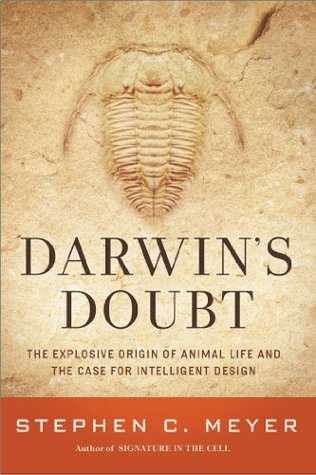If at any time from birth to reproduction the right mutation or combination of mutations accumulate in the DNA of cells involved in reproduction (whether sexual or asexual), then information for building a new protein or proteins will pass on to the next generation. When that new protein happens to confer a survival advantage on an organism, the genetic change responsible for the new protein will tend to be passed on to subsequent generations. As favorable mutations accumulate, the features of a population will gradually change over time. Clearly, natural selection plays a crucial role in this
...more
This highlight has been truncated due to consecutive passage length restrictions.


